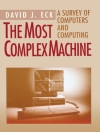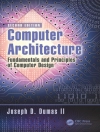The resilience of computing systems includes their dependability as well as their fault tolerance and security. It defines the ability of a computing system to perform properly in the presence of various kinds of disturbances and to recover from any service degradation. These properties are immensely important in a world where many aspects of our daily life depend on the correct, reliable and secure operation of often large-scale distributed computing systems.
Wolter and her co-editors grouped the 20 chapters from leading researchers into seven parts: an introduction and motivating examples, modeling techniques, model-driven prediction, measurement and metrics, testing techniques, case studies, and conclusions. The core is formed by 12 technical papers, which are framed by motivating real-world examples and case studies, thus illustrating the necessity and the application of the presented methods. While the technical chapters are independent of each other and can be read in any order, the reader will benefit more from the case studies if he or she reads them together with the related techniques.
The papers combine topics like modeling, benchmarking, testing, performance evaluation, and dependability, and aim at academic and industrial researchers in these areas as well as graduate students and lecturers in related fields. In this volume, they will find a comprehensive overview of the state of the art in a field of continuously growing practical importance.Table of Content
Part I Introduction and Motivating Examples.- Fault Tolerance and Resilience: Meanings, Measures and Assessment.- Resilience in Mobile Networks: A Need and a Challenge.- Assessing Dependability and Resilience in Critical Infrastructures: Challenges and Opportunities.- Providing Dependability and Resilience in the Cloud: Challenges and Opportunities.- Part II Modelling Techniques.- Phase-Type Distributions.- Scalable Stochastic Modelling for Resilience.- Part III Model-Driven Prediction.- Modelling and Model-Based Assessment.- Software Aging and Rejuvenation for Increased Resilience: Modeling, Analysis and Applications.- Online Prediction: Four Case Studies.- Part IV Measurement and Metrics.- Foundations of Metrology in the Observation of Critical Systems.- Field Studies on Resilience: Measurements and Repositories.- Failure Diagnosis of Complex Systems.- Fault Injection.- Resilience Benchmarking.- Part V Testing Techniques.- Enforcing Resilience by Systematic Testing based on Structural and Operational Coverage Measures.- Resilience Assessment based on Performance Testing.- Robustness Testing Techniques and Tools.- Part VI Case Studies.- Case Study: Mobile Networks.- Case Study on Critical Infrastructures: Assessment of Electric Power Systems.- Providing Dependability and Performance in the Cloud: Case Studies.- Part VII Conclusions and Outlook.- Future of Resilience Assessment: The AMBER Research Roadmap.
About the author
Katinka Wolter is a senior researcher at the Free University Berlin, where she leads a research group working on Quality of Service in wireless networks and dependability of service-oriented architectures. Her interests are in performance and reliability modeling and the evaluation of computer and communication systems, networks, and applications.
Alberto Avritzer is currently a senior member of the technical staff at the Software Engineering Department at Siemens Corporate Research in Princeton, NJ. Before moving to Siemens Corporate Research, he spent 13 years at AT&T Bell Laboratories, where he developed tools and techniques for performance testing and analysis. His research interests are in software engineering, particularly software testing, monitoring and rejuvenation of smoothly degrading systems, and metrics to assess software architecture. He is a member of ACM SIGSOFT, and IEEE.
Aad van Moorsel is a Professor at the School of Computing Science at the University of Newcastle. Prior to that. he worked in industry, first as a researcher at Bell Labs/Lucent Technologies in Murray Hill and then as a research manager at Hewlett-Packard Labs in Palo Alto. His research agenda aims at establishing intelligent enterprises, with a specific focus on trust, privacy and security. Marco Vieira is an Assistant Professor at the University of Coimbra, Portugal. He is an expert on dependability and security benchmarking and is coauthor of the first dependability benchmark proposal known – the DBench OLTP. His research interests include experimental dependability evaluation, fault injection, robustness testing, software development processes, and software quality assurance.












